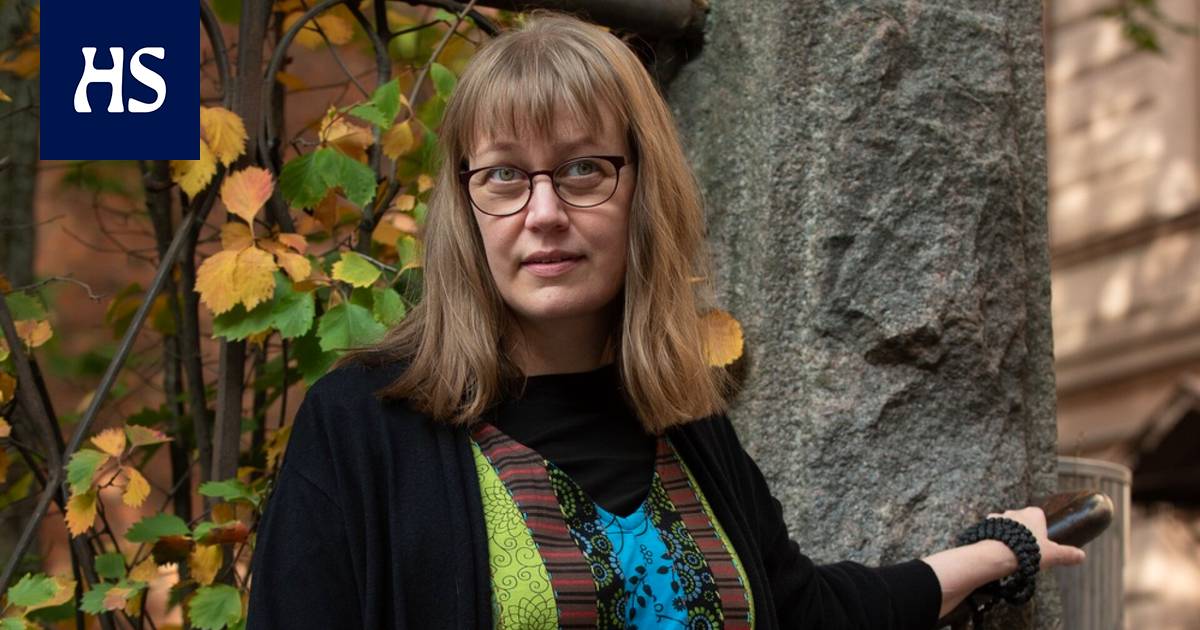Culture|Book review
Suomentoja’s first collection draws from Baltic Finnish mythology.
Poems
Katja Meriluoto: The weight of the bee. Aviator. 66 pp.
In Estonian in the cultural discourse, Baltic Finnish myths are much closer to the mainstream than in Finland. Their strong position is probably related to the national renaissance that contributed to Estonia’s independence, where, for example, the former president of Estonia Lennart Meri built world-historical significance for the Baltic Sea region with the help of mythologies.
Lately a semiotician Valdur Mikitan the collections of essays in which he outlines positive content for the northern forest and a special role for Estonians in the world have been bestsellers.
Two of the books have been translated into Finnish, and when reading them, it is striking that Mikuta, who also counts Finns among his special group of forest people, would have been bundled here in the blink of an eye as an eccentric marginal fool – and allowed to publish his own work.
This would be our loss, although I don’t completely share the thought of the eccentric author.
Baltic Finnishness and the mythical dimensions of its cultures are recognizably present in what is known as the Estonian translator Katja Meriluoton in a strong debut collection that is built around a beehive. In the weight of a bee we are looking for an experience that crosses the border between man and animal in an almost shamanistic spirit. Meriluoto also draws from the descriptions of transformations in the poetry tradition from the Roman of Ovid since.
This is how the poem moves from the winter ball to the part of the individual bee flying to the spring meadow: “I dance from a flower that has just opened, vibrating, / I smell honey and clovers, buttercups and an apple tree. / The world is a convex lens, thin at the edges.”
The opposite of the meadow is a literally superficial glass city, which is quite tired as a metaphor for modernization. However, Meriluoto mostly writes about worn settings in a fresh way.
The idea visible in the poems, that the modern world is a broken and distant reflection, symbolized by Tallinn’s Rocco Al Mare shopping center, is shared with Mikita’s essays. The poems outline a live, local and immediate experience to mend a broken connection – at the same time it becomes clear that this is not a pleasure trip.
Integrity is present in the mythical beginning, where the world is assembled from the fragments of the eggshell, and it seems to be always possible again, also on an individual level, as merging with nature.
“
Maybe we need to learn to be bored again, the collection seems to suggest.
Meriluoto outlines cyclical history instead of linear: everything repeats itself, there are new lives and beginnings, even if now the sea seems to be about to boil. We often think we are on the cutting edge and know more and more, but everything can be destroyed by something no one notices:
“A system that the gray void if / from time to time breaks.”
Another author who excelled in bee-themed poems, Olli-Pekka Tenniläcomes to mind without looking for these thoughts.
The day always passes over the sky again, the seasons pass, and the mother Marfa, a woman from a hundred years ago, whom the poetic self named as her teacher, is suddenly present as a bee:
“Mother Marfa can fit in a box of sticks, / and almost a century of sounds and movement, / more and more new names and things suddenly become unnecessary. / I tear open the box: mother Marfa sleeps with her feet in the kippura / on the blueberry flower slope, / the cuckoo falls, the emptiness rumbles in the beginning of summer.”
In relation to the flood of information of our time, this kind of Chekhovian boredom feels like an idyll in the collection. Maybe we need to learn to be bored again, it seems to suggest.
Because The weight of the bee is poetry, and even more so, the kind of top quality that lasts for several readings, which trusts its reader and leaves gaps for this reader’s pleasure, interpreting it only as an argument for, say, an outwardly simpler life will not get you very far.
It’s about rhythmic and concise saying and their connection.
As Finnish role models and predecessors, especially the young and Tiarnia series early Pentti Saarikoski and of more recent poets Sanna Karlströmwhose lyric Meriluotoa combines the art of reduction and the ability to write about death in his own words and clearly.
#Book #Review #Katja #Meriluotos #topquality #poetry #collection #built #beehive









